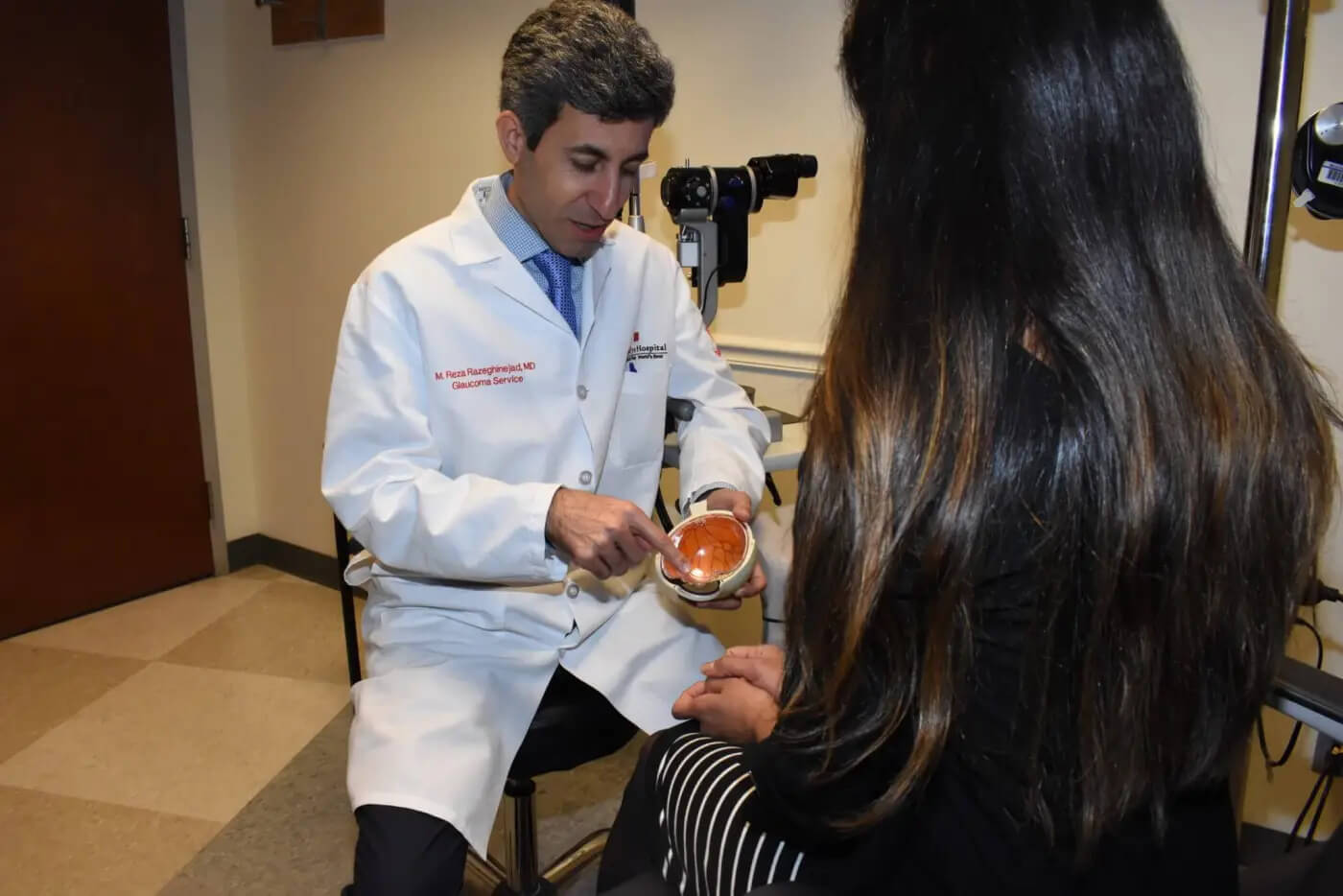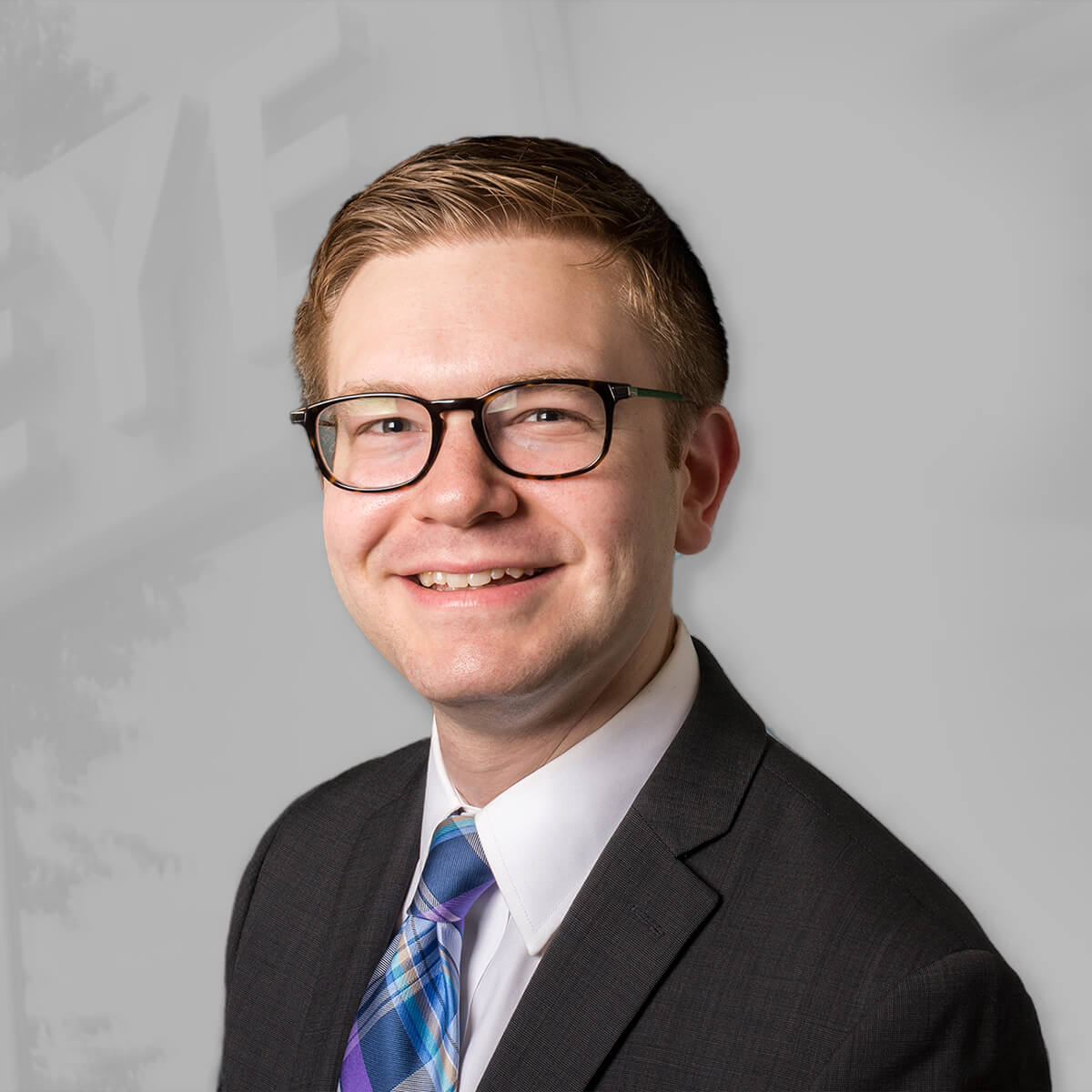Medical Services
Wills Eye specialists are dedicated


Wills Eye has one of the largest and foremost programs dedicated to glaucoma in the United States.
Founded in 1963 by renowned ophthalmologist George Spaeth, MD, the service provides personalized, high-quality care while engaged in numerous research efforts into the diagnosis and treatment of this leading cause of vision loss. Our doctors are also educators, dedicated to training the next generation of glaucoma specialists.
Patients from all walks of life and virtually all parts of the world come to the Glaucoma Service for consultation. From groundbreaking treatments enhanced through state-of-the-art technologies and innovations, our highly trained specialists have the skills and expertise to manage glaucoma, minimize its progression, and prevent blindness.
Trusted Experience and Expertise
Wills Eye Glaucoma doctors are dedicated to providing world-class glaucoma treatment and care. The disease is often asymptomatic, and people may lose their vision without knowing it.
Appropriate treatment for glaucoma will prevent loss of sight in the majority of patients whose condition is detected early. Regular eye exams are an important way to detect the disease.
What is Glaucoma
Glaucoma refers to a group of diseases that damage the optic nerve, which carries visual information from the back of the eye to the brain. Although glaucoma may not have symptoms in the beginning, eventually, permanent vision loss can occur. Vision loss from glaucoma is irreversible; therefore, early identification, treatment, and consistent follow-up are important. Risk factors for glaucoma include age, family history, race/ethnicity, and increased eye pressure.
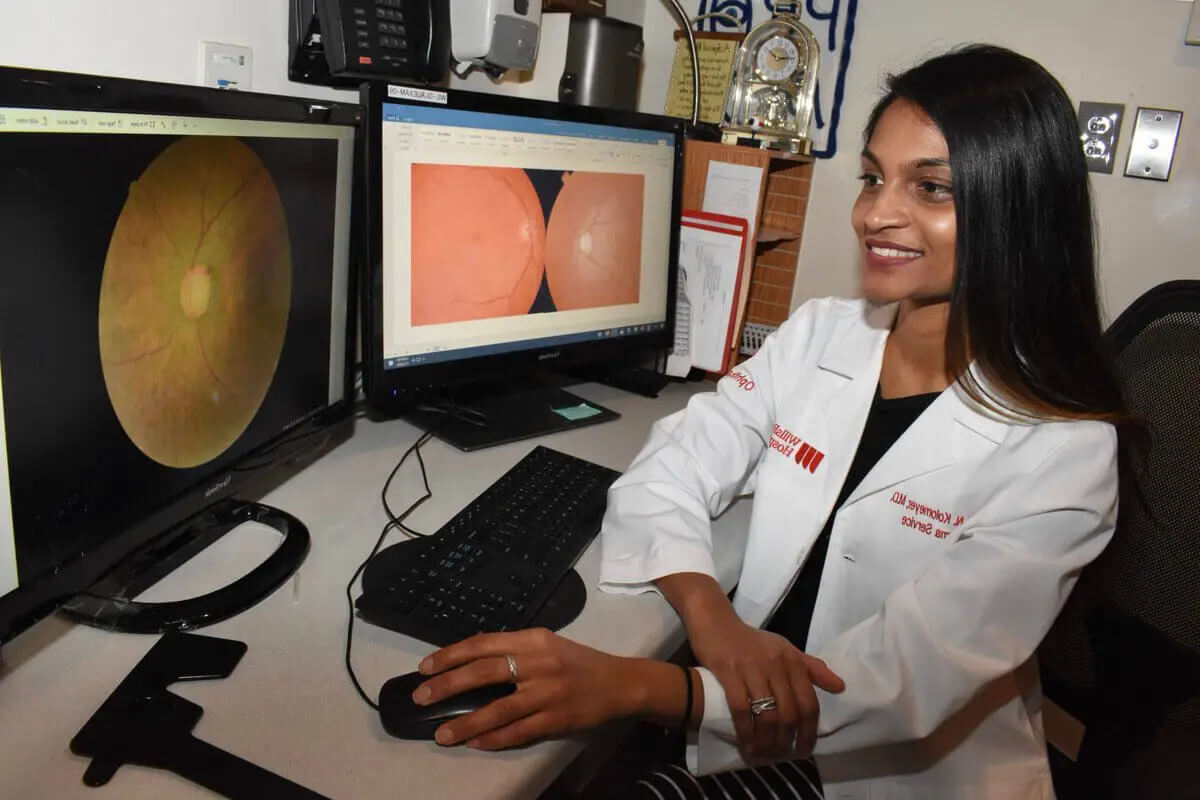
GLAUCOMA:
Signs and Symptoms
For most people with glaucoma, there are no warning signs or noticeable changes in vision until the disease has silently and gradually worsened to a severe stage. About half of those with glaucoma do not yet know they have it. This is why glaucoma is often called the “sneak thief of sight” and one of the main reasons why it is still one of the leading causes of blindness in the world.
SYMPTOMS
In the early stages, glaucoma typically affects peripheral (or side) vision. Vision changes start with a very subtle blurring, which usually begins near the nose. Since we see with both eyes at the same time, vision lost in one eye is often covered up and hidden by the other eye. If left untreated, areas of vision loss will slowly spread and may go unnoticed until it reaches the central vision. On the other hand, some people may develop acute glaucoma, which often presents with severe vision loss and pain that is brought on rather quickly.
Glaucoma symptoms are usually a combination of:
• Severe eye pain and headache
• Blurry vision
• Redness of the eyeball
• Nausea (upset stomach) or vomiting
GLAUCOMA TESTING & DIAGNOSIS
The best way to test for glaucoma is through a comprehensive eye exam with an ophthalmologist. The examination includes an eye pressure test, evaluation of your angle (gonioscopy), and your optic nerve with dilation if appropriate. Depending on your examination, there are many other tests that the doctor may request, such as a visual field test or optic nerve photograph.
Generally, glaucoma tests are divided into two groups:
• Assessing the structure of the optic nerve, and
• Assessing the function of the optic nerve
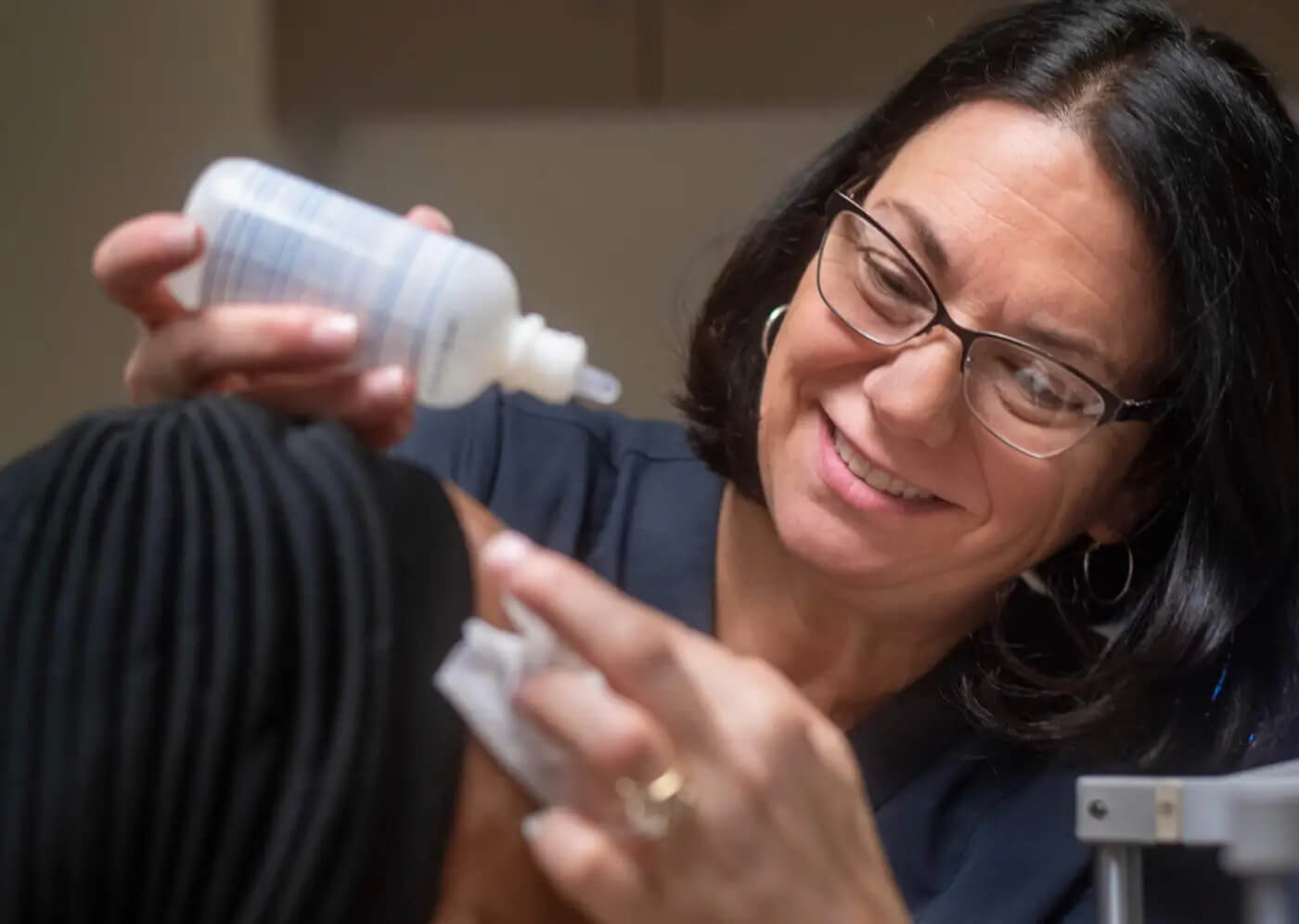
GLAUCOMA TREATMENT
The primary way to treat glaucoma and prevent or slow the progression of vision loss is by decreasing eye pressure. Medications and/or eye drops can often achieve this; however, in some patients, glaucoma laser treatment or glaucoma surgery is needed to lower the eye pressure to a safer range. Recent studies show that many patients will be safer starting with laser treatment instead of eye drops, as this may reduce the risk of needing cataract or glaucoma surgery.
Common Laser-Based Glaucoma Treatment and Laser Surgery Options
The type of surgery that is best suited for a particular patient is based on many factors, such as the type of glaucoma, eye pressure goal, shape of the eye, and prior eye surgeries, amongst others. Therefore, it is best to discuss whether you are a candidate for a particular type of laser treatment, laser surgery, or other surgical option with your doctor. Click on the links below for more information.
Glaucoma Laser SURGERY
IN the Office
MINIMALLY INVASIVE GLAUCOMA SURGERY (MIGS)
GLAUCOMA FILTERING SURGERY
Contact Us
Physicians on the Glaucoma Service of Wills Eye Hospital treats patients with glaucoma. Please contact us today and make an appointment to meet with a renowned glaucoma specialist.
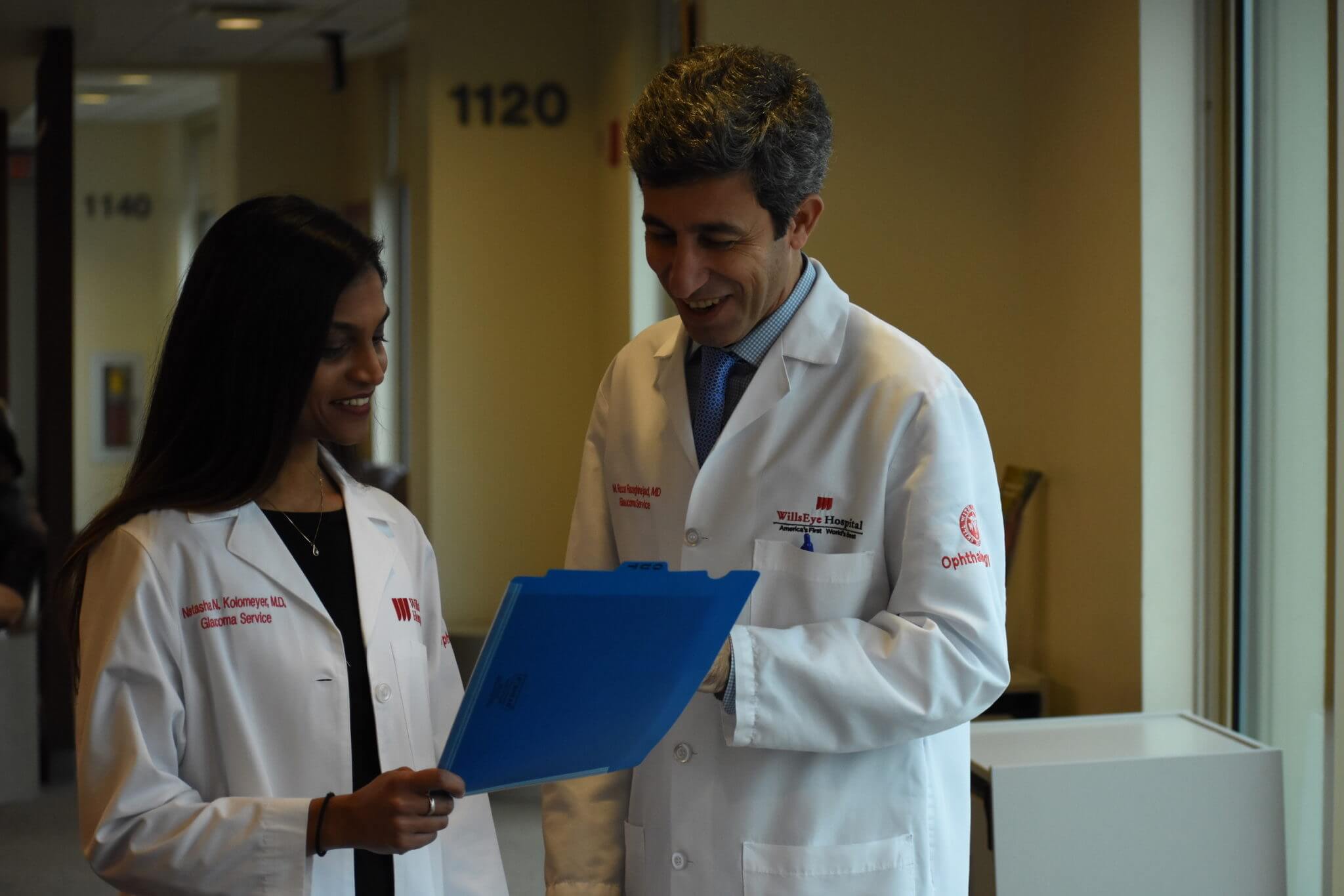
Online Appointment Request: Click here
840 Walnut Street, Suite 1110
Philadelphia, PA 19107
Monday through Friday, 8 a.m.–4:30 p.m.
DIRECTOR: Jonathan S. Myers, MD
CO-DIRECTOR: Joel S. Schuman, MD
FELLOWSHIP DIRECTOR: Reza Razeghinejad, MD


